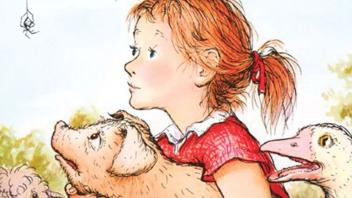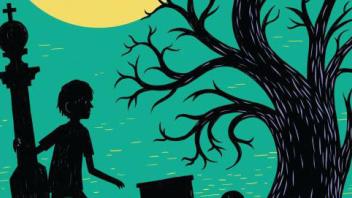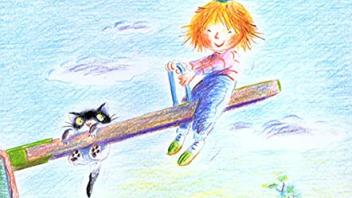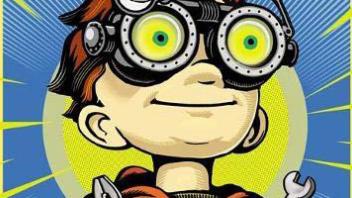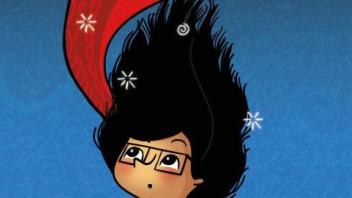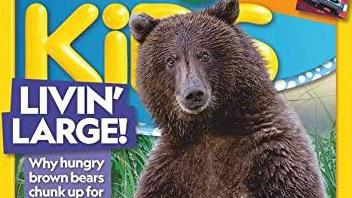During this month, Reading Rockets asks each of you to teach one person one new thing about learning disabilities. If you find an interesting article or resource here, consider passing it along to a friend, family member, or colleague.
History of LD Awareness Month
October was originally designated in the United States as LD Month in 1985 through a proclamation by President Ronald Reagan. Organizations in the United States use this month to inform the public about learning disabilities through events and proclamations. LD Awareness Month is celebrated in many states, often coordinated through each state’s Learning Disabilities Association of America office.
Information on learning disabilities
Down and Up: The Animated Journey of a Child Struggling in School
This animation from the National Center for Learning Disabilities shows what it’s like for a child who is struggling in school. It also shows the power of kind words when it comes to overcoming obstacles.
The Basics
Learning Disabilities: An Overview describes what a learning disability is, the different types, and the causes.
These briefs describe the specific types of learning disabilities:
- Dyslexia (reading problems)
- Dysgraphia (writing problems)
- Dyscalculia (math problems)
- Executive Function Difficulties (problems with organization)
- ADHD (trouble regulating attention)
- Who Can Diagnose LD and ADHD
In this article, It Took Me Too Long to Decode My Daughter’s Dyslexia, a mother describes the warning signs for dyslexia in her daughter that she didn’t see clearly. She also shares the life-changing resources that helped her understand what dyslexia is and how to get her daughter the support she needed to thrive.
Print books, audio books, and e-books for children
Children with reading disabilities often avoid reading because it is so difficult for them. There are a number of ways to encourage a struggling reader. Sometimes it helps to read about characters who have some of the same challenges that you do. Kids can also try high/low books that feature engaging, age-appropriate stories, but are written at an easier reading level. Graphic novels can be especially appealing to readers who are reluctant to pick up a more traditional book. Audio books and e-books are other excellent options for struggling readers.
Children’s books
Share a book with a child you know. Read Favorite Books for Kids with Learning and Attention Issues for ideas, or try one from the booklists featured below.
High/low books
High/low (or “hi-lo”) books are books with high-interest topics for students reading below grade level. High/low books can motivate kids who find reading a struggle by building confidence and interest in reading. These kinds of books also help strengthen reading fluency, vocabulary, and background knowledge — key elements in reading comprehension. See our article High/Low Books for Children to find recommended high/low books, as well as links to publishers who offer a wide range of titles.
Graphic novels
- Graphic Novels for Young Kids
- Graphic Novels for Kids: Classroom Ideas, Booklists and More
- Graphic Novel Conversion
Audiobooks
Audiobooks allow children who struggle with reading to enjoy a book that’s at their interest level, but that might be above their reading level. They also provide good examples of fluent, expressive reading and strengthen listening skills.
- Listen and Learn with Audiobooks
- Riding and Reading
- Benefits of Audiobooks for All Readers
- Where to Find Free Audiobooks and Digital Text-to-Speech Books for Your Child (Understood)
E-books
Featured booklists
Themed Booklist
Our Favorite Audiobooks
Themed Booklist
Books About Kids Who Find Reading Hard
Themed Booklist
Celebrating Kids Who Learn Differently
Themed Booklist
Graphic Novels: Read the Pictures
Themed Booklist
Diverse Books: Graphic Novels
Themed Booklist
Great Magazines for Kids!
Find more books!
Browse Book Finder to find more titles:
- Books: select “Learning and Diversity Issues” from the Themes list and “Neurodiversity” from the Diversity list.
- Graphic novels: select “Graphic novel” from the Format list.
- Audiobooks: select “Audiobook” from the Format list.
All Kinds of Readers: A Guide to Creating Inclusive Literacy Celebrations for Kids with Learning and Attention Issues
Special literacy events and celebrations can be a great way to get kids excited about books and reading. But for kids who struggle with reading, these kinds of events can challenge their self-confidence. Here are 15 strategies to help you plan a successful, joyful reading event for all kinds of readers and learners. See article
More featured video
Author Lin Oliver (Hank Zipzer series)
Meet Lin Oliver, co-author (with Henry Winkler) of the popular Hank Zipzer and Here’s Hank series about a young boy with learning differences who is funny, resourceful, and smart. Find out why kids (and their parents) love Hank and learn more about the readable “dyslexie” font and page design in the Here’s Hank series.
Oliver also talks about the importance of celebrating differences and supporting the unique strengths in each child, as well as her own experiences parenting a child with attention issues.
At home: playdates
Expert Rick Lavoie talks about the importance of teaching a child with LD the necessary social skills to build solid friendships. In this excerpt from the PBS program It’s So Much Work to Be Your Friend, parents learn how to plan a successful playdate.
In the classroom: twice exceptional
Dr. Dennis Higgins teaches seven boys in New Mexico who need some unique instruction. They are “twice exceptional,” which means they are both intellectually gifted and struggling to remediate an identified learning disability. From our Launching Young Readers show, A Chance to Read.
Inspirational stories
Stories about success can inspire each of us to feel more confident in meeting the challenges of learning disabilities.
- My Son’s Disability, and My Own Inability to See It. How the special education system helped her child.
- The World’s Greatest Underachiever. Actor and author Henry Winkler talks about how dyslexia impacted his school years.
- The Handicap that Had No Name . The story of how learning about the “label” of learning disabilities helped a college student to understand herself.
- The Journey Begins . Cary Westbrook succeeds in college and on the job despite his learning disabilities.
Reading Rockets is a proud founding partner of Understood , a free online resource for parents of children with learning and attention issues.

